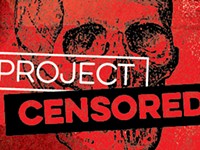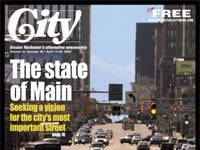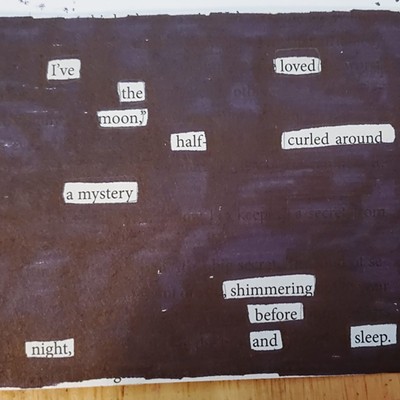[
{
"name": "500x250 Ad",
"insertPoint": "5",
"component": "15667920",
"parentWrapperClass": "",
"requiredCountToDisplay": "1"
}
]
On July 18, 1870 --- the day before France declared war on Prussia --- the First Vatican Council met for a vote on papal "primacy" and infallibility. There were "533 Fathers on hand, and all but two voted placet [yes]," writes Father Robert F. McNamara in his history of the Rochester diocese. Rochester Bishop Bernard McQuaid hadn't stayed for this final vote. But McQuaid, says McNamara, had been among the loyal opposition, fearing it could "imperil the church" or even lead a pope to revive old abuses like "the deposition of monarchs." One of the two who actually voted no was Bishop Edward Fitzgerald of Little Rock, Arkansas. A story arose that the dissenters flip-flopped after the vote, kneeling before the pope and declaring credo (I believe).
This antique drama sounds like what 532 US legislators did October 10 and 11 in the temple of American government. The House of Representatives voted 296-133 (with three not voting) to give George W. Bush almost absolute authority to attack Iraq and knock out real or imaginary weapons of mass destruction. The Senate did the same, 77-23 --- with West Virginia's Robert Byrd and Massachusetts's Ted Kennedy lonely in high-profile dissent. One Senator with ties to Little Rock had been wrestling with the issue, but finally she sent her credo through the electronic voting system. (New York's other senator, Chuck Schumer, also voted yes.) The kneeling before the figurehead in the White House was figurative.
If you think this point of reference is off the wall, think about how much power the House and Senate have given Bush --- and not just over Iraq.
In late September, Bush released a document that will make an Iraq war only a preface. The 30-odd-page National Security Strategy of the United States of America recognizes the obvious (that the global balance of power has changed since the end of the Cold War) and seeks the impossible and immoral (permanent US global dominance).
In the old days, says the document, the nation's enemies "needed great armies and great industrial capabilities." Today, the document continues, "shadowy networks of individuals can bring great chaos and suffering to our shores for less than it costs to purchase a single tank." True, we used to face the Soviet Union, which gave us a run for our money. But within the Cold War framework, we chose to smash a "shadowy network" now and then, like the elected government in tiny Grenada, or an impoverished nationalist movement in Vietnam.
But there's a lot that's new and noteworthy in the Bush document. The New York Times's David E. Sanger, for example, found it "striking" that "the president has no intention of allowing any foreign power to catch up" [emphasis added] with us militarily. Indeed, the Bush document is direct: "Our forces will be strong enough to dissuade potential adversaries from pursuing a military buildup in hopes of surpassing, or equaling, the power of the United States."
The document takes a positively Roman-esque view of military global positioning, too: "To contend with uncertainty and to meet the many security challenges we face, the United States will require bases and stations within and beyond Western Europe and Northeast Asia, as well as temporary access arrangements for the long-distance deployment of US forces." You get the feeling that an invitation from the lucky host country won't be de rigueur.
Even more troubling, though, is the document's unambiguous enshrining of first-strike policy, though the vocabulary has shifted a little to fool us. The document states the US "will not hesitate to act alone, if necessary, to exercise our right of self-defense by acting pre-emptively." You hope there would be some hesitation, at least, before our leaders used nuclear weapons --- but the new strategy does not forbid such use.
The new strategy also seeks to move the US away from (treaty-based) nuclear non-proliferation and toward "proactive counterproliferation efforts." These efforts will include "counterforce capabilities" --- meaning getting them before they get us, cowboy-style.
And as usual, the "rogue states" are the cause of it all --- and the "rogues" emphatically do not include us, however qualified we are.
Unfortunately, many Americans, weaned on a chauvinism whose octane has only increased since September 11, won't think there's anything odd here. We're Number One, right? And that means everybody is Number Two or less, right, even if they're as big and rich as the EU or as enormous and poor as China?
The document looks at the economic pecking order, too. And it would put into praxis the philosophical claim that we've reached the "end of history," that modern capitalism, victorious and fully developed, is as good as it gets.
There is only, says the document's introduction, "a single sustainable model for national success: freedom, democracy, and free enterprise... Free trade and free markets have proven their ability to lift whole societies out of poverty --- so the United States will work with individual nations, entire regions, and the entire global trading community to build a world that trades in freedom and therefore grows in prosperity." Thus the document, so unbalanced in its worldview, does have a kind of symmetry. It tells the big players not to get too full of themselves, and the bit players to accept the trade/aid conditions set by intrinsically American institutions, the World Bank and International Monetary Fund.
It also distorts the record. Economist Mark Weisbrot of the Center for Economic and Policy Research, observes that poor countries have lost big under globalization. "In Latin America," he wrote to the UK Observer, "per capita income grew by 75 percent from 1960-1980; from 1980-2000 [under the new paradigm] it grew by about 7 percent."
No wonder the new US strategy is giving the also-rans heartburn.
On October 9, the Washington-based Center for Defense Information's Brussels correspondent summarized the "view from Europe." The summary found some comparatively good news, for example the National Security Strategy's acknowledgement of "the need to prevent conflicts... by 'diminishing the underlying conditions that spawn terrorism.'" This, the summary said, "will resonate among the many European countries" that favor "diplomatic engagement" and "efforts to improve the social and political situations" through trade and economic aid.
But the summary found trouble, too. It noted that France's Le Monde diplomatique "likened US plans for pre-emptive attack on Iraq to Hitler's disastrous decision to attack the Soviet Union." The summary also said Europeans in general prefer "consensus" and "international laws and institutions" to American-style "fervent nationalism."
You have to wonder how much more fervent American nationalism will become. But the trajectory is clear.
In 1996, former President Bill Clinton issued his own national security document. In keeping with longstanding US policies, the Clinton document was made of blood and iron. (The US, for example, has always rejected the rejection of nuclear "first use," and many trails of tears show the nation's willingness to attack without having been attacked.)
But Clinton sounded downright passive compared to Bush junior. "At this moment in history," said Clinton, "the United States is called upon to lead, to organize the forces of freedom and progress." That's not very good --- and yes, Clinton himself bombed Iraq regularly. But first-among-equals does sound better than Bush's "make my day."
Speaking of Iraq, George W. Bush
-

Project Censored
Nov 19, 2014 -

Toward what end? Obama's ISIS policy
Sep 17, 2014 -

National security: the US, Obama, and Iraq
Jun 18, 2014 - More »
Latest in Columns
More by Jack Bradigan Spula
-

The state of Main
Apr 14, 2004 -
School improvement: the price is wrought
Apr 7, 2004 -
Hour of power
Mar 31, 2004 - More »




